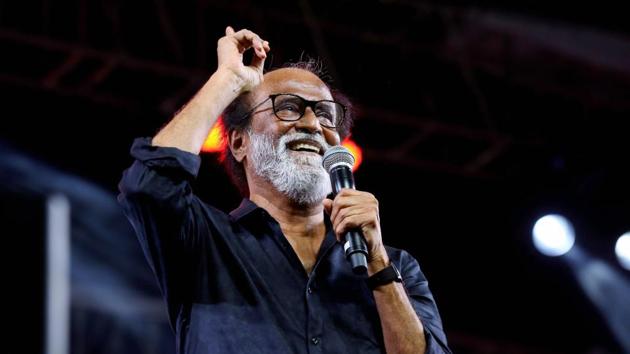Kaala ban: A Rajinikanth film is not just an entertainer, but has political undertones as well
However, banning Kaala in Karnataka could help Rajinikanth the politician in Tamil Nadu
The ban on Pa Ranjith-directed Rajinikanth-starrer Kaala in Karnataka is unfortunate — because banning is not the best way to achieve the stated motive behind the act. Banning a film, a book, or any other art form has achieved little in the past — on the contrary, it has helped push the publicity for the banned product.

In that spirit, I think banning Kaala from Karnataka is a foolish move. If Kannadigas are really hurt by the statement(s) made by Rajinikanth on the Cauvery river water dispute and the stand he has taken in favour of Tamil Nadu, they could show their anger by boycotting the film when it hits the theatres across Karnataka.
However — while still maintaining that banning is not the right approach — it is naive to defend the movie by saying ‘oh, it’s just a film’; ‘we should protect artistic freedoms’, etc. Protecting artistic freedoms is important, but Kaala is not just any other film, it’s a film by Rajinikanth — Rajini, the superstar, the matinee idol who has an unparalleled fan following and who is also now a politician in Tamil Nadu.
Rajinikanth’s films have helped complement his image — that of a leader who stands up for the people and speaks up against injustice. None of his films have been overtly political; however, the subtle undercurrents in the themes, the sharpness in dialogues which resonated with the then political scenario in Tamil Nadu and a carefully cultivated image around his superstardom make it impossible to view his films as pure entertainers disassociating them from contemporary politics. A handful of his movies that came out in the mid- and late-nineties, which were his biggest hits and gave him his cult status, came also at a time when his dalliance with politics was at its peak.
By using films to send socially-relevant and political messages, Rajinikanth was only following a trend set in Tamil Nadu by MG Ramachandran, M Karunanidhi, J Jayalalithaa, and many others.
If Rajinikanth is considered a political leader and his outfit is seen as an option in Tamil Nadu, it is because he has made himself familiar to the people through his movies and the work done by his fan associations across the state. What makes him relevant today is the body of work through which he has spoken.
Thus, to see a Rajinikanth film purely as an art form and entertainer ignoring the political weight it carries is to misread the situation. In that sense, actor Prakash Raj, who has spoken in defence of releasing Kaala in Karnataka, is not entirely correct in comparing Kaala to the Hindi film Padmaavat.
The story and message Rajinikanth wants to convey through Kaala will be clear once the film hits the screens, but one can be rest assured that it will have an impact on the political career of the superstar.
This is also why a ban on Kaala in neighbouring Karnataka could become a blessing in disguise for Rajinikanth’s political career in Tamil Nadu. The financial losses of a ban across Karnataka aside, the political capital Rajinikanth will gain for standing up and taking a hit for the needs of the Tamil people could help him and his political outfit immensely in the 2019 elections and the state polls in 2021.
To sum up: Banning a film (Kaala) is an outdated, even irrelevant form of protest, here it could even help Rajinikath the politician in Tamil Nadu. To look at Kaala only as an entertainer, ignoring the political weight it carries, is to miss the point entirely.






